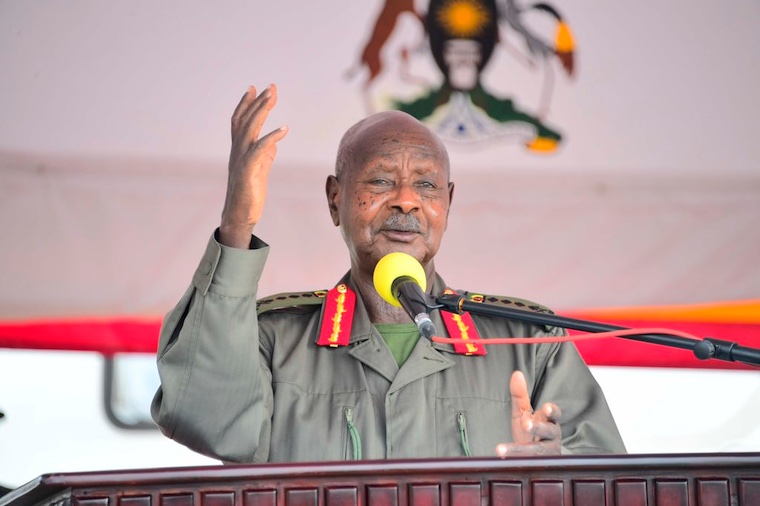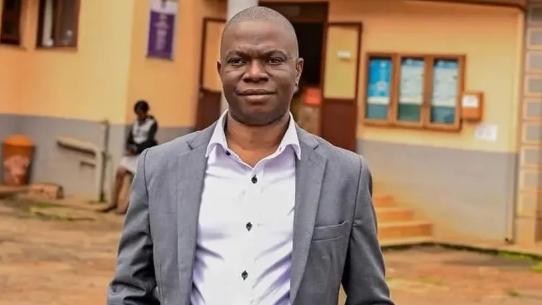Museveni to courts: No bail for corruption suspects

President Museveni has asked the judiciary to include corruption on the list of unbailable cases
“We should easily defeat the corruption. The only support we need from the judiciary is no bail for those accused of murder, treason, terrorism, rape, defilement, corruption (embezzlement), and village thefts if the prosecution is ready for trial,” said Museveni while addressing the ongoing retreat cabinet at the National Leadership Institute Kyankwanzi.
“Let the case be tried or use alternative justice but no bail and no impunity for the above cases...with a correct, revolutionary, and objective approach, we should easily defeat corruption,” said Museveni.
In his opening statement to the ministers, Museveni said, “It is now clear that corruption is a big problem in Uganda. IGG estimates that the country loses Shs 9.7 trillion per year because of corruption. This is not acceptable.”
This is the second time that the president used figures from the Inspectorate of Government to show how much the corrupt are robbing the taxpayers. However, there is a feeling that the president has weakened the IG’s office by appointing parallel institutions to do a similar job.
Museveni’s critics have been attacking him on mainstream and social media after the creation of the unit that he said will help the government close revenue leakages and boost tax collection. Museveni also appointed David Kalemera as a senior presidential advisor and head of the unit. The appointment of Kalemera, a tax fraud convict has attracted more criticism.
Kalemera was in 2022 found guilty by the Anti-Corruption court of falsifying customs documents. He had been dismissed from the URA in 2017. Without referring directly to Kalemera, Museveni told his ministers that because accounting officers had let themselves down, he decided to come in indirectly to fight those who steal government money.
“Apart from the State House Anti-Corruption Unit, I am also setting up both a tax investigation unit and an accountancy and audit unit. They will be able to investigate all tax evasions, under-declarations, money diverted by parliament and stolen, etc,” he explained.
Museveni recently accused parliament of sabotage after he discovered that MPs had in the last four financial years, irregularly reallocated a over Shs 3.7 trillion. Museveni said in creating parallel structures, he seeks to link directly with the victims of the corruption of the government people and these are the people (the Wanainchi)
“They have all the information. Besides, we have the young people, the Kampala Parents and allied products, who have a different attitude from the present accounting officers who are originally villagers with a careerist and mercenary mentality. The Kampala Parents group are moved more by “passion” than by “remuneration,” Museveni noted.
Forms of corruption in Uganda
Museveni said the corruption faced by the government has two dimensions. Those included the stealing of government money; taking bribes from the public to provide government services; misusing the procurement procedures to cheat the state; and corruptly handling personnel issues through nepotism and selling government jobs.
The other dimension of corruption according to Museveni is employee disloyalty in a private company.
“The employees who steal from their employers, are also enemies of the country. If the employers blacklist Uganda as a country where employees steal money from their employers with impunity, Uganda’s economy will get stunted,” he said.
He reminded the police to ensure that those who steal from companies, private or government, are held fully accountable, including paying back the money, they stole on top of prison sentences. Blocking MPs salaries
Over the years, Museveni has been accused of playing blind while the legislative arm of government increased its salaries especially after the parliamentary commission was created. Parliament has been in the limelight over allegations of corruption. Museveni told the ministers that he could have blocked the moves by the MPs to award themselves high salaries.
“I opposed but did not block because it is not always correct to block everything you consider a mistake. It is better, sometimes, to oppose but also allow people to learn from their mistakes or for the issue at hand to be clearer,” he explained. He noted that the mistake by elements in the parliament could not have been solved correctly at that time.
Museveni noted that it was s better that the MPs learn from their own mistakes, preserve the unity of the ruling National Resistance Movement (NRM), and give him time to improve the geostrategic situation of the region with Mobutu’s Congo, Bashir’s Sudan, Mzee Moi in Kenya who would sometimes close our borders, as well as still having a young Army that needed metamorphosis.
“Besides, the MPs, unlike the other public servants, were not very many in number. Their disruption was in the bad example and not in the magnitude of the money involved. They have now learned that mistake. That is why fund-raising is now very unpopular among MPs now," he added,








